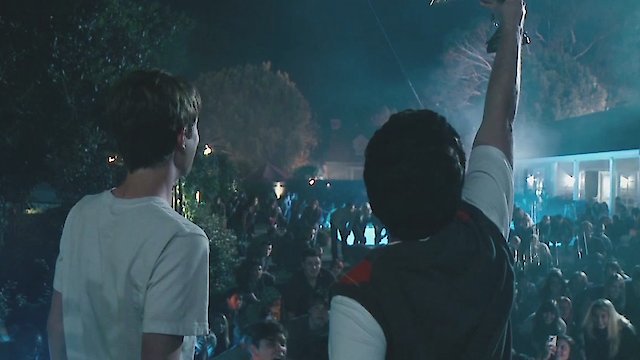

Less heartening were the apparent beams of approval from the older people among them. At the screening I attended, young film-goers whooped excitedly at the dismal shenanigans depicted. Project X may be warning us that it is heading that way. Life isn't yet a wild party that applauds those who pursue their desires at everyone else's expense.

It's their parents' job to set them straight. Like Thomas, they fall prey to the apparent imperatives of the moment. When it comes to partying, as in other fields, the young are allowed more autonomy but are given less guidance on how they should exercise it. Ordered out of the house because their children want to party, they may meekly acquiesce. They want to be liked, not respected, and their authority has therefore waned. In the past, parents might have resisted misplaced demands, but many have lost the confidence to do so. Teenagers want more and expect to get it. The relationship between adolescents and their parents has also changed. It's not just that smartphones and social media have made it easier for gatecrashers to mobilise. Young people have always sought out festivals of misrule, but the out-of-control teenage house-party is a product of our age. Teen parties have wrecked homes in Britain as well. Like Thomas, Delaney became a media star. Five hundred people turned up, and clashes with police broke out. Project X is reported to have been inspired by the story of Corey Delaney, a 16-year-old in Melbourne who held a party in his parents' house after announcing it on MySpace.
#Project x 2012 full movie movie#
Yet the film's producer, Todd Phillips, declares: "The whole movie really rests on authenticity." Might it contain an element of truth? Project X could be interpreted as a fantasy concocted to appease a generation mistakenly feared by ageing film-makers. Hollywood is terrified that it is losing its grip on the young male audience on which its success has depended for so long. Thank you for bringing this to our attention, Warner Bros. In the end, everyone will approve, including the grownups. Whatever price you and others have to pay, it will be worth it. So just do what it takes to get what you want. As that same dad surveys the wreckage of his family's life, he ventures wonderingly: "I didn't know you had it in you." Before the party, his dad declared him "a loser". He wins the attention of the media, and with it celebrity status. It's not only Thomas's peer group that applauds him. So he gets the girl he wants, reassuring her that he doesn't care about having bankrupted his parents because he cares about her instead. No matter: at school he is now a superhero. His college fund will have to be spent on rebuilding the family home, and the law is on his tail. The mayhem that Thomas precipitates earns him the respect he craves. All that matters is the grim pursuit of personal advantage. The suffering inflicted in the process, both on his own family and the entire neighbourhood, is acceptable collateral damage. Thomas, the 17-year-old host, isn't really staging the event to celebrate his birthday or even to have fun he is out to persuade his schoolmates that he's cool, and therefore merits pussy. The drug-fuelled revelry seems desperate rather than rapturous. There's none of the charm, warmth, wit or remorse to be found in other party films. A neighbour who complains about the noise is simply Tasered. They're all good looking, but that may be because the invite included the injunction: "Ugly bitches stay home." A dwarf gets locked in the oven, while a pet dog is tied to helium balloons and sent aloft. The girls eagerly endorse their own abuse.

The boys refer to their female classmates as "hos" and "bitches" and seek their company only as masturbatory aids.


 0 kommentar(er)
0 kommentar(er)
